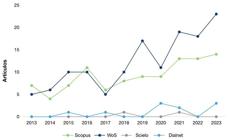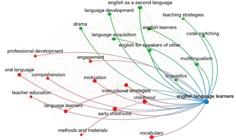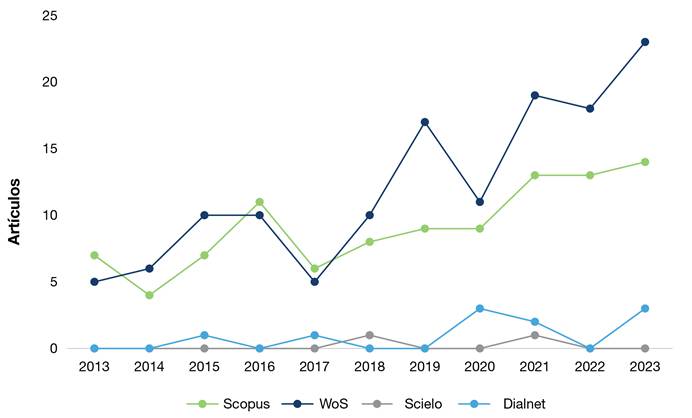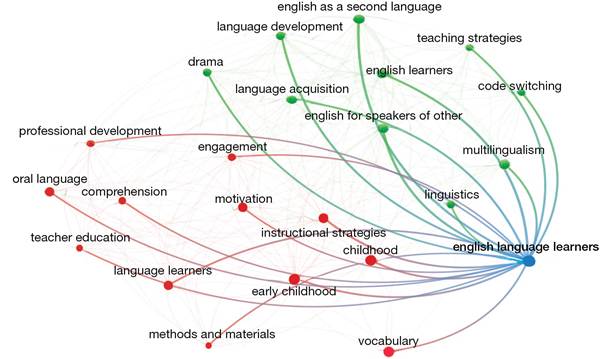| 1 |
Análisis, Diseño Desarrollo, Implementación, Evaluación con tecnología (ADDIE) |
Cuantitativa. Se evalúa la estrategia por criterio de expertos, pero no se aplica. |
No reporta |
Incremento en el interés por el aprendizaje del inglés y mejoría en la comprensión lectora. Integración efectiva de tecnología y contenido educativo. Requiere recursos para el desarrollo y actualización de los materiales. |
| 2 |
Estrategia pedagógica musical (EPM) |
Cuasiexperimental con elementos de análisis cualitativo: Mixto. |
52 niños |
Mejoras en la pronunciación y comprensión auditiva. Combinación de enfoques cuantitativos y cualitativos para una evaluación más completa. Complejidad en la implementación y análisis de datos. |
| 3 |
Correspondencia de fonemas y letras en inglés y turco (CFL) |
Estudio de caso con herramientas etnográficas. |
No reporta |
Enriquecimiento del vocabulario y mejora en la comprensión de textos complejos. |
| 4 |
Enseñanza intencional en lenguaje oral (ELO) |
Investigación-acción |
No reporta |
Mejora en la fluidez y confianza al hablar en inglés. |
| 5 |
Estrategia pedagógica musical (EPM) |
Estudio de caso |
No reporta |
Personalización del aprendizaje basada en el uso de canciones. |
| 6 |
Intervención con apoyo de señas (SSE) |
Estudio cuasiexperimental pre y post-intervención. |
104 niños |
Avances significativos en el vocabulario específico y la capacidad de expresión. |
| 7 |
Realidad Aumentada como herramienta de enseñanza del inglés (RA) |
Cuasiexperimental |
2 grupos de 50 y 52 niños |
Mejora en la comprensión y retención del vocabulario a través de experiencias inmersivas. Limitaciones técnicas y acceso a los dispositivos necesarios. |
| 8 |
Estrategia de vocabulario en inglés (VOCA) |
Observación directa y entrevistas: cualitativo. |
Tres clases de K2 y tres clases de K3 |
Mayor interacción verbal y colaboración entre estudiantes. Desarrollo de habilidades. |
| 9 |
Efectos de la tecnología de Realidad Aumentada en el enriquecimiento del vocabulario (RA) |
Mapeo bibliométrico y análisis de contenido. |
No reporta |
Identificación de tendencias y brechas en la investigación existente. Ofrece una visión amplia del campo y sus desarrollos. |
| 10 |
Libros ilustrados para enseñar inglés con estrategias específicas de enseñanza de idiomas para principiantes (LIB) |
Estudio cualitativo |
No reporta |
Selección e instrucción con libros para enseñar inglés con temas científicos. Libros ilustrados con altos niveles de narratividad, puede ser efectiva en la enseñanza de inglés a alumnos. |
| 11 |
Fomento del inglés desde la oralidad (LOTE) |
Métodos mixtos de aproximación. Revisión de literatura y desarrollo de intervenciones pedagógicas. |
No reporta |
La instrucción de literacidad para niños bilingües emergentes, presentando ejemplos de actividades instruccionales. |
| 12 |
Enfoque basado en el juego para interacciones de lenguaje alfabetizado (LUD) |
Estudio de caso |
No reporta |
Intervención para la ilustración, composición y dramatización de libros y el poder multimodal del juego. |
| 13 |
Estrategia de vocabulario en inglés (VOCA) |
Estudio cuasiexperimental con instrumentos de análisis cuantitativos pre y post. |
60 niños de primera infancia |
Avances significativos en el vocabulario específico y la capacidad de expresión. Uso efectivo de gestos para reforzar el aprendizaje. |
| 14 |
Enfoque basado en el juego para interacciones de lenguaje alfabetizado (LUD) |
Estudio cualitativo de múltiples casos. |
6 aulas preescolares |
Alta motivación y participación estudiantil. Incorporación exitosa de repertorio en inglés (vocabulario). |
| 15 |
Actividad física y motora (ACFIS) |
Cuasiexperimental, diseño pretest y postest. |
Tres centros infantiles |
Metodología combinada de actividad física y gestualidad en el aprendizaje de vocabulario en inglés. |
| 16 |
Proyecto de artista (TAP) |
Métodos mixtos |
No reporta |
Estrategias de enseñanza utilizadas en mejorar las habilidades de lenguaje oral de los jóvenes. |

 Systematic Review of Teaching and Learning Strategies for English as a Foreign Language in Early Childhood
Systematic Review of Teaching and Learning Strategies for English as a Foreign Language in Early Childhood Thumbnail
Thumbnail
 Thumbnail
Thumbnail
 Thumbnail
Thumbnail


